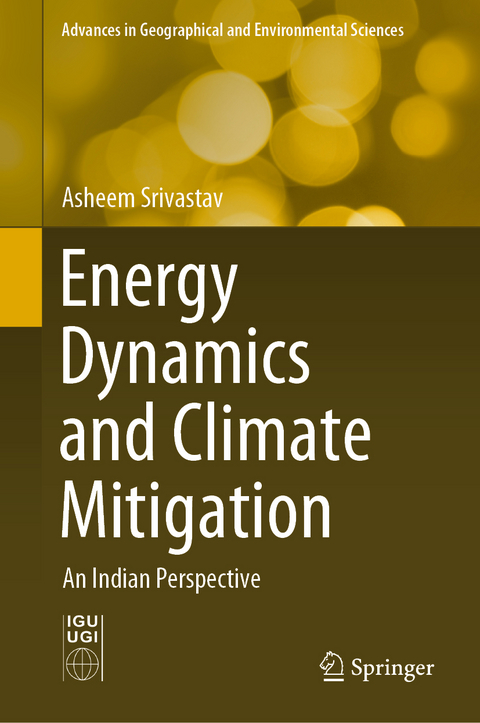
Energy Dynamics and Climate Mitigation
Springer Verlag, Singapore
978-981-15-8939-3 (ISBN)
The Indian economy is poised for a big leap in the near future, and the topmost priority of the government is to ensure energy security, accessibility, and affordability for nearly 1.5 billion people. Currently, 70% of India’s electricity generation comes from coal- and oil-based thermalpower plants, and only 12–15% of energy is generated from renewable sources. Experts are of the view that the demand for coal and gas power generation will continue to rise and is expected to reach the equivalent of nearly 2 billion t of oil by 2030. The annual consumption of natural gas is expected to increase fourfold to 200 billion m3 a year in the near future, and its share in the primary energy basket of coal, oil, and gas will rise from 6.5% to 15% by 2030. This will not only cause a significant drain on foreign reserves but will also pose an enormous challenge to policymakers and scientists. This book serves as a useful guide in shaping India’s future energy policy.
Asheem Kumar Srivastav is a former Indian Forest Service Officer with the rank of Principal Chief Conservator of Forests. His career has combined positions in the Indian government and international organizations including the International Union for Conservation of Nature and Natural Resources, Traffic International, and the Ministry of Environment, Forests and Climate Change. He was instrumental in the preparation of the Integrated Coastal Zone Management project for the Government of India. He has provided strategic, managerial, and technical inputs in a range of ecosystems of different countries of Asia including Cambodia, China, India, Laos, Nepal, Pakistan, Sri Lanka, Thailand, and Vietnam. A forester by training, he holds master’s degrees in natural resource management and in zoology from the Indira Gandhi National Forest Academy and Delhi University, respectively. He has also been trained in natural resource management and forestry at the University of Edinburgh and the University of Wolverhampton, UK, as well as the University of British Columbia, Vancouver, Canada.
Energy security and sustainability – An Overview.- Energy Sector Progression in India.- The Challenges of Energy Supply.- Climate Mitigation and India’s Commitment to Global Community.- Fourth Industrial Revolution and India.
| Erscheinungsdatum | 26.10.2020 |
|---|---|
| Reihe/Serie | Advances in Geographical and Environmental Sciences |
| Zusatzinfo | 164 Illustrations, color; 13 Illustrations, black and white; VIII, 194 p. 177 illus., 164 illus. in color. |
| Verlagsort | Singapore |
| Sprache | englisch |
| Maße | 155 x 235 mm |
| Themenwelt | Naturwissenschaften ► Biologie ► Ökologie / Naturschutz |
| Naturwissenschaften ► Geowissenschaften ► Meteorologie / Klimatologie | |
| Technik ► Elektrotechnik / Energietechnik | |
| Wirtschaft ► Betriebswirtschaft / Management ► Unternehmensführung / Management | |
| ISBN-10 | 981-15-8939-9 / 9811589399 |
| ISBN-13 | 978-981-15-8939-3 / 9789811589393 |
| Zustand | Neuware |
| Haben Sie eine Frage zum Produkt? |
aus dem Bereich


